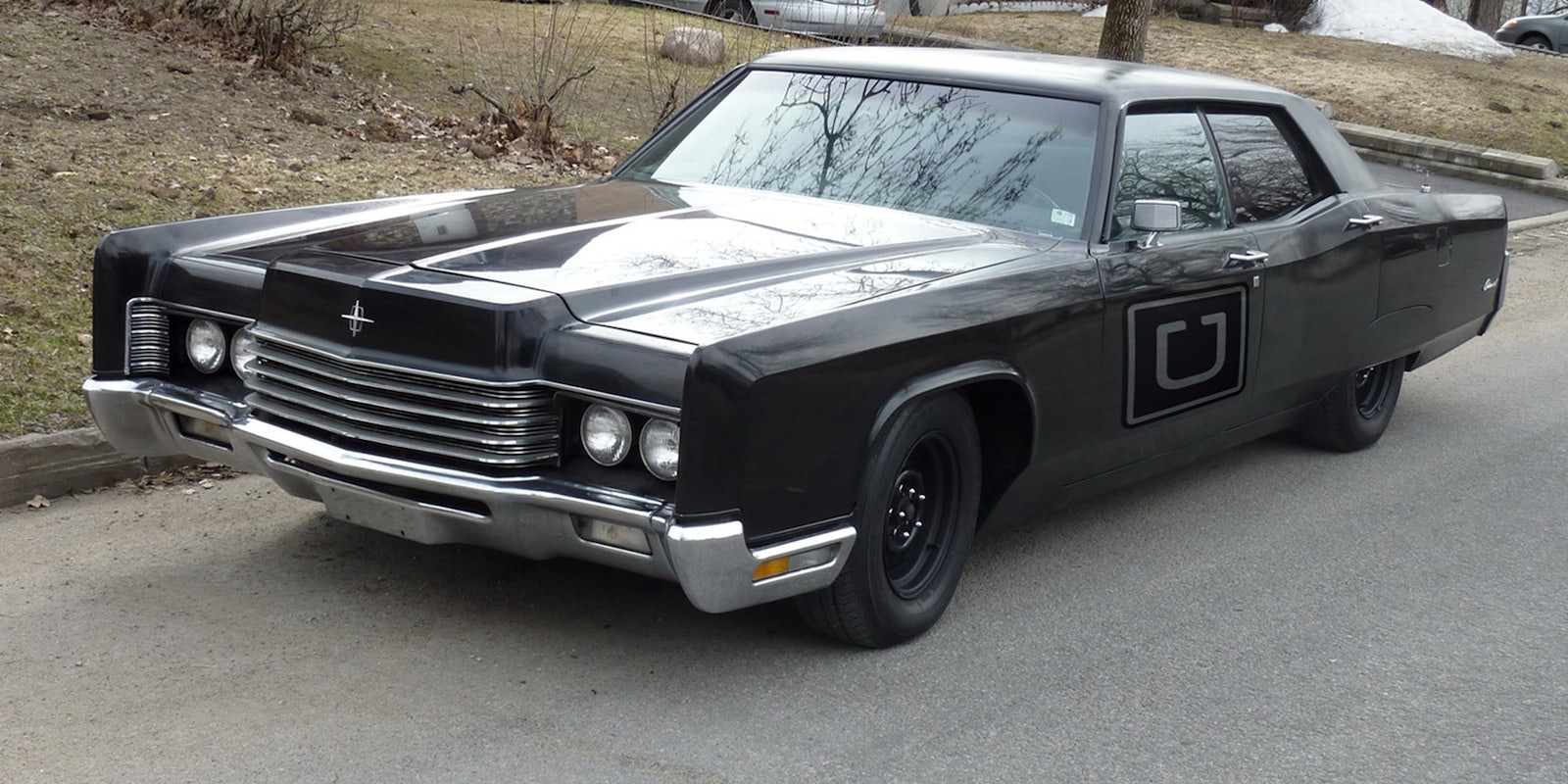In Uber’s latest municipal David vs. Goliath standoff, the ridesharing company worth more than $40 billion decided to stomp into Portland, Ore. and set up shop. Last Friday, Uber gleefully announced that it would begin operating unlawfully in Portland, the largest remaining U.S. city in which ridesharing apps like Uber and its competitors remain illegal.
Portland might be well known as an quirky urban hub of Pacific Northwest niceness, but as demonstrated by the cease and desist it issued to the San Francisco-based startup yesterday, it doesn’t plan to go quietly.
In a public Facebook post denouncing Uber’s decision to steamroll local laws, Portland mayor Charlie Hales didn’t mince words:
“The City of Portland needs to create policies that ensure safety and access for everyone. We want to make sure such policies do not adversely impact the low-income immigrant populations that currently drive taxis.
In the meantime: Portland embraces the technology of the sharing economy. The city will continue to work with transportation-network companies like Lyft to embrace that economy. To the degree that Uber wants to be part of that process: fine.”
Monday, the city filed a lawsuit against Uber Technologies Inc. together with a cease and desist order requesting that the company and any local drivers stop operating immediately.
“If Uber thinks there should be no maximum price on what they charge Portlanders, they should make their case to the Portland City Council,” said City Commissioner Steve Novick, who supervises the Portland Bureau of Transportation. “If Uber thinks taxi companies shouldn’t have to serve people with disabilities, they should make their case.”
In true pseudo-populist fashion, Uber issued a dramatic call to arms inviting users to sign a petition to help the company “become part of the fabric of Portland” for Portlanders who “deserve a safe, hassle-free transportation option.” Meanwhile, it’s not immediately clear what transportation crisis the regular incumbent for America’s most bike-friendly city is suffering from exactly.
https://twitter.com/Uber_PDX/status/542086280998170626
Notably, the petition reached locales as far-flung as New Zealand, imploring anyone and everyone to weigh in on what is inarguably a local issue.
https://twitter.com/ow/status/542111465029640193
While the city of Portland attempts to ward off the company’s above-the-law advances with fines and legal action, Uber is waging a war of optics overhead, roping in quirky local icons—the “Unipiper” took Portland’s first Uber ride—and ingratiating itself among locals with Portland in-jokes, like this tweet about the Portland airport’s oddly beloved carpet pattern.
https://twitter.com/Uber_PDX/status/539341257311412224
Given its sharing economy thrust, Uber once enjoyed widespread support among Portland’s burgeoning tech scene—a population seemingly critical to the company’s mission. In late 2013, a number of Portland tech leaders signed a letter imploring the city to embrace the company’s presence.
But with new Uber scandals popping up on a near-weekly basis and a corporate culture regularly described as “toxic” oozing out through the cracks, Portland’s tech leaders have largely quietly withdrawn their support or charged toward Uber full-bore. Cabel Sasser, the cofounder of Portland-based software company Panic articulated the local tech scene backlash, mimicking Uber’s trademark font and stark black background:
Troublemaking me wanted to run this response ad in @wweek. I wish I had. But since it’s too late, enjoy, Twitter: pic.twitter.com/cGAYuCC7bb
— Cabel (@cabel) December 8, 2014
Uber is antithetical to the Portland tech scene’s vibe in nearly every way imaginable. Informed by the community’s deep enthusiasm for the open source movement, sustainability, and locavorian mindset, the “Silicon Forest” is infused with a spirit of cooperation and modesty that eludes its namesake to the south.
While Portland residents root for NSA critic Ron Wyden (D-Oreg.) and check their credit union balances, Uber flexes the power of its Mafioso-esque executive lineup by dispatching executives to the Department of Defense and cozying up to Goldman Sachs for the long haul.
Uber may have conscripted a flaming bagpipe-playing unicyclist, but defending its own Portlandiness is a fight the rose city is unlikely to back down from. As Sasser put it:
“Basically, be a little more like… Portland. Then maybe we’ll talk.”
Photo via Gangster Car Driver/Flickr (CC BY 2.0) | Remix by Jason Reed


